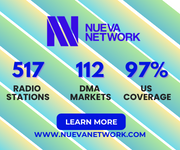Five Tips for coping when (Not If) your Social Media Accounts are Hacked.
January 25, 2013
The way this week has been going, it may not end up being just The Week of the Hacker but the Year of the Hacker.
First there was Burger King’s Twitter account, which suddenly started to proclaim that it was, essentially, the Home of the McRib, followed by a hack of Jeep’s Twitter account to make it look like the brand had been bought by Cadillac.
Even Donald Trump got thrown (tee-hee) in to the Twitter hack-a-thon. For one brilliant moment he was tweeting like Lil Wayne.
And I haven’t even mentioned the Chinese, whose quest for the Olympic Gold Medal in Hacking seems to know no level of shame. As The New York Times — which has been a target of Chinese hacks — reported this week, much of the country’s sophisticated hacking activity can be traced back to a nondescript office building on the periphery of Shanghai that also serves as the headquarters of P.L.A. Unit 61398. (That’s ”People’s Liberation Army” for you non-Communists.)
But, in such a hack-heavy week, much of the advice I found about how to handle a corporate
social media hack was, well lacking.
Sure, it’s a good idea to change the password on the corporate Twitter and Facebook accounts when someone who has access to them leaves the company (duh!), and take other measures. But, such tech-based advice – which has been on ample display all week — doesn’t deal with a core truth: When nothing else is left after the nuclear holocaust, cockroaches and hackers will still roam the earth.
Hate to break it to you, but, deep down, you know it to be true. What this means is that while you must remain ever-vigilant against hackers, you also need a more philosophical approach to dealing with your accounts’ inevitable hacking. Here, then, five pointers:
1. Remember, there’s no such thing as bad publicity. Well, maybe if you’re Anthony Weiner there is, but when it comes to having your corporate Twitter account hacked, not so much. As has been widely reported, the Burger King Twitter account’s followers surged from 83,000 to 110,000, not to mention all of the free publicity, which — in Burger King’s case — serves to remind the world that your company is still very much alive even though it is dominated by McDonald’s. And this is a bad thing?
2. Don’t get too obsessed with the hacker’ s idea of “content.” Sometimes it feels as though hackers like naughty content even more than they like hacking, as if the hack is simply the means by which they can achieve distribution for the naughty content. That said, no sentient being actually believes that Donald Trump would suddenly start tweeting about “hoes,” even though his Twitter account did this week. They are also unlikely to believe that Burger King has been bought by McDonald’s, for that matter. If people remember anything in the haze of their information overload, it’s the fact that an account was hacked. That’s all.
3. The more hacking happens, the less potent it is. Hackers may always be with us, but there are so damn many of them that, when it comes to mundane hacking like taking over a company’s Twitter account, it’s quickly turning into a “been there, done that” situation. Bo-ring!!! A real hacking problem is when China breaks into your corporate servers to steal trade secrets. In the big scheme of things, these kinds of social media account hacks just don’t rise to that level. Get over it.
4. It is possible to capitalize on a hack. After Burger King got its account back, it tweeted that it hoped the account’s new followers would stay on. But imagine this scenario: BK Twitter followers were rewarded with a coupon to use at their nearest BK restaurant. That’s the most powerful weapon I can think of against a hacker. When life gives you hackers, make hack-en-ade.
5. Keep your (corporate) sense of humor. I know, this is a hard one, especially within the confines of corporate America. One can only imagine the finger-pointing that went on inside Burger King, and Jeep, and the Donald’s large head this week (oh, wait, maybe not there — Trump’s hack was all Twitter’s fault). But the fact remains that people prize companies that keep events like Twitter account hackings in context. It’s not as though customer information was accessed.
I write these tips knowing that I have the freedom that few readers of this column have: the freedom of not having any responsibility for my company’s or client’s social media presence. It’s a beautiful thing. But remember, most of the followers and fans a brand has are also outside observers. And they care much less about your account being hacked than you probably think. Keep that in mind while you’re thinking up that ultra-secure password.
by Catharine P. Taylor
Catharine P. Taylor has been covering digital media and advertising for almost 15 years.
Courtesy of MediaPost































